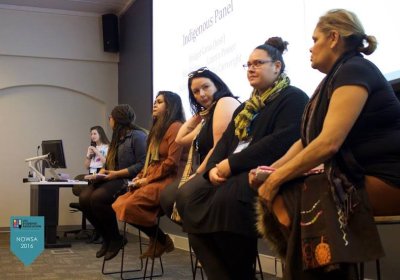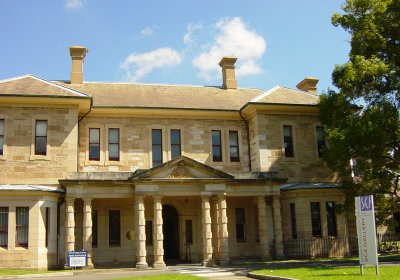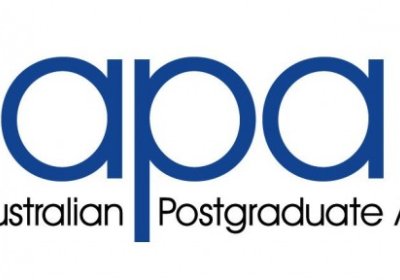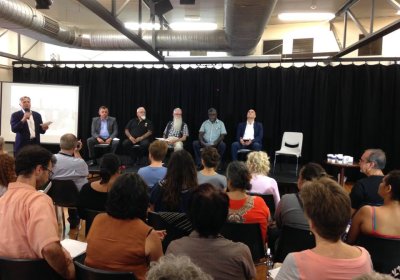“I look at the body I have, which is a male body, and I want a female body”, Alexis Greenwood, a young woman transitioning from male to female, told Green Left Weekly.
Greenwood is speaking up about the barriers she faces because she wants more people to ask questions. She wants more people to be less ignorant about being transgender.
Greenwood said she “always knew something was wrong”. At 16 years old, while performing a monologue in her drama class about a transitioned person, she thought: “This feels right, this is me”.
Rachel Evans
 The first round of the campaign to Save Sydney College of the Arts (SCA) has been won by students and staff.
Sydney University's Vice Chancellor Michael Spence sent an email to all SCA students on July 28 saying their plan to close the Rozelle campus and merge it with University of NSW was over.
The first round of the campaign to Save Sydney College of the Arts (SCA) has been won by students and staff.
Sydney University's Vice Chancellor Michael Spence sent an email to all SCA students on July 28 saying their plan to close the Rozelle campus and merge it with University of NSW was over.
The annual feminist conference, July 1 to 6, organised by the Network of Women Students of Australia (NOWSA) featured an panel of First Nations’ activists who addressed a range issues and answered questions.
Kicking it off, Bridget Cama, a Wiradjuri and Fijian woman, and a previous National Union of Students and Aboriginal and Torres Strait Islander office bearer talked about rights, feminism and spirituality.
 The campaign to stop Sydney University closing the Sydney College of the Arts (SCA) based in beautiful Callan Park has consolidated support from staff, arts institutions, political parties and community groups.
The campaign to stop Sydney University closing the Sydney College of the Arts (SCA) based in beautiful Callan Park has consolidated support from staff, arts institutions, political parties and community groups.
The Australian government released its National Strategy on International Students 2025 in April.
At its heart lies a strategy for exploiting international students and increasing the commercialisation of the education sector. It aims to swindle hundreds of thousands of international students and normalise the neoliberal idea that students are consumers and that education and learning are commodities.
Sydney University's College of the Arts (SCA) is nestled in a section of Callan Park, Rozelle, overlooking the Parramatta River, with expansive grounds resplendent with hundred-year-old trees. The college has many buildings and spacious grounds. All undergraduate students receive a studio space.
 “When one farmer kills themselves you can call it suicide. But when a quarter of a million farmers kill themselves, how can the government call it suicide? It is genocide. These farmers are being killed by design.”
So opens Cotton For My Shroud, a documentary about embattled Indian farmers and the assault on traditional rural agricultural life waged by Monsanto and the political class in its pockets.
“When one farmer kills themselves you can call it suicide. But when a quarter of a million farmers kill themselves, how can the government call it suicide? It is genocide. These farmers are being killed by design.”
So opens Cotton For My Shroud, a documentary about embattled Indian farmers and the assault on traditional rural agricultural life waged by Monsanto and the political class in its pockets.
Thirty students representing 25 postgraduate organisations met at the Council of Postgraduate Association (CAPA) Special Council Meeting to discuss issues faced by postgraduate students in a corporatised university setting.
CAPA is the peak, not-for-profit body that represents 320,000-plus postgraduate students, through its 33 postgraduate affiliates and the National Aboriginal and Torres Strait Islander Postgraduate Association (NATSIPA).
It was standing room only at the Men Speak Out For Treaty forum held in the Redfern Community Centre on March 14 organised by the Stop the Intervention Collective Sydney. The meeting was facilitated by journalist and filmmaker Jeff McMullen.
Wiri Man Tony McAvoy argued that a treaty would settle past injustices and build a better future. A treaty would have to include an acknowledgement that Australia was conquered not settled, and recognition of Aboriginal rights to self-determination.
Racism and homophobia are on the rise. Millions of lesbian, gay, bisexual, transgender, intersex (LGBTI) and sex and gender diverse identifying (SGDI) people face life-threatening persecution.
About 2.7 billion people live in the 76 countries that criminalise homosexuality. The death penalty for homosexuality is applied in Iran, Mauritania, Saudi Arabia, Sudan and Yemen. In China, several hospitals use electric shock therapy as “anti-gay treatments”.
There are more people today who have been displaced by war, poverty and climate change than at any point in recorded history. The current number of refugees has exceeded those displaced by World War I and World War II combined.
The battle to save land and water in north-west NSW's Liverpool Plains, from coal and coal seam gas continues to be fought by Aboriginal communities, farmers, local councils and environmentalists.
People in Tamworth, Moree, Narrabri, Boggabri, Gunnedah, Quirindi and Toomelah are fighting coalmining in the Leard State Forest and the Shenhua Watermark coalmine near Gunnedah. They are battling huge coal seam gas (CSG) projects in the Pilliga and gas projects in Narrabri and Tamworth.
- Previous page
- Page 18
- Next page








